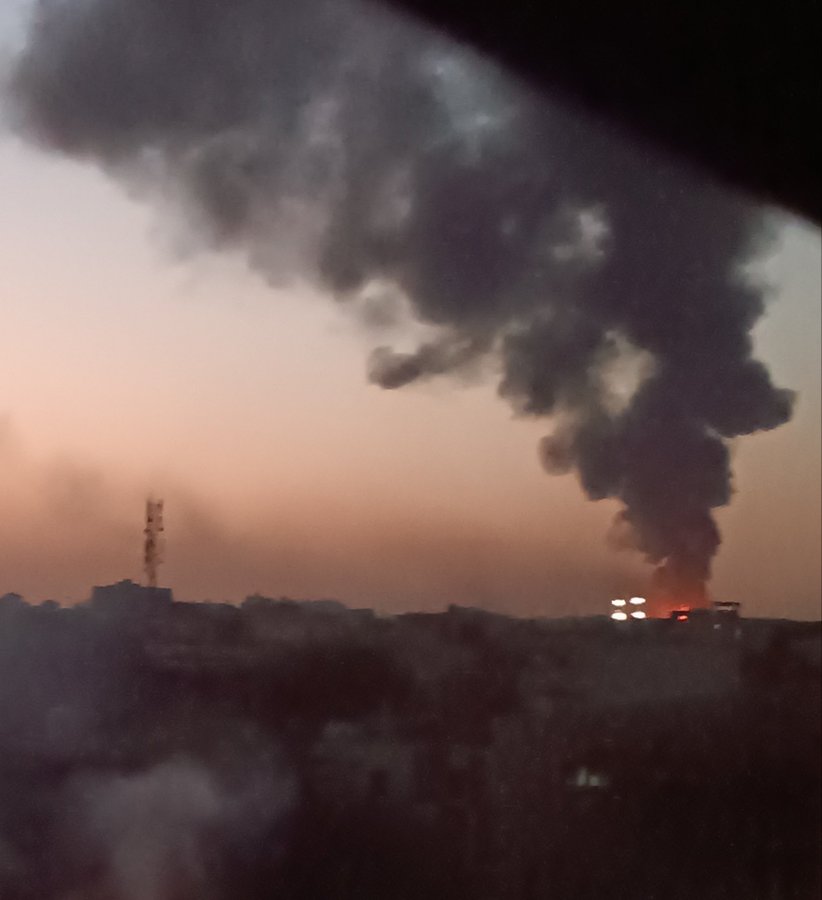Sudan activists ‘reject both warlords, call for participation in peace talks’

Footage of blasts in the Sudanese capital earlier this month (social media)
KHARTOUM –
While representatives of the Sudan Armed Forces (SAF) commanded by Lt Gen Abdelfattah El Burhan and the paramilitary Rapid Support Forces (RSF) headed by Lt Gen Mohamed ‘Hemedti’ Daglao began ‘pre-negotiation talks’ in Saudi Arabia yesterday, many Sudanese activists reject both warring parties.
The resistance committees active in the neighbourhoods of eastern Khartoum said in a press statement on Tuesday that the usual “binary position (with/against the army/ militia), does not concern us as civilians in anything”.
According to the resistance committees, “the two positions express a direct interest for each of the parties to the conflict in power,” while “our position necessarily favours the only one affected by this war, the Sudanese people – whom the conflicting parties are attempting to get on their side and their allies, in order to gain popular and political support.
“The most important position now is the preservation of people’s lives and their livelihood, peace and security, and access to basic services.”
Warlords
Jonathan Hutson, a strategic communications professional, who served as the architect of the Satellite Sentinel Project launched in 2010 to monitor “mass atrocities in Sudan”, confirmed the view of the Khartoum East Resistance Committees in a tweet yesterday.
Based on information from “reliable sources in Sudan, political parties, resistance committees, women’s organisations, trade unions & human rights defenders,” he states that “Sudanese civil society leaders reject both warlords [..], no matter who wins this unjust war.
“Sudanese civil society leaders say that neither Gen. Burhan nor Hemedti will gain legitimacy, or the type of enduring cooperation needed to govern Sudan. They add that rule by strongmen would produce economic chaos, protests, mass killings, starvation, and diseases such as cholera.”
One of them, who asked to remain anonymous for reasons of security, told Hutson that “We cannot talk about rebuilding a peaceful, new Sudan as long as either of these two warlords dominates Sudanese political life.”
Bargaining table
The civil society activists insist that they be included at the bargaining table in order for peace negotiations to succeed. They call for a ceasefire, civilian control of the entire government and all components of the state, including the armed forces and law enforcement, Hutson says.
They call for paramilitary troops to be absorbed by the army under civilian authority, and demand that a transitional government under civilians will have the authority to root out corruption and to prepare for fair, transparent, and just elections.
Hutson lauds the activities of the resistance committees on the ground. They “are doing amazing work and deserve more validation, resources, and support from the international community”.
He further states that Sudan, devastated by the war, will need support from, but not interference by, the USA and the international community to rebuild and to help stabilise the Horn of Africa.











 and then
and then